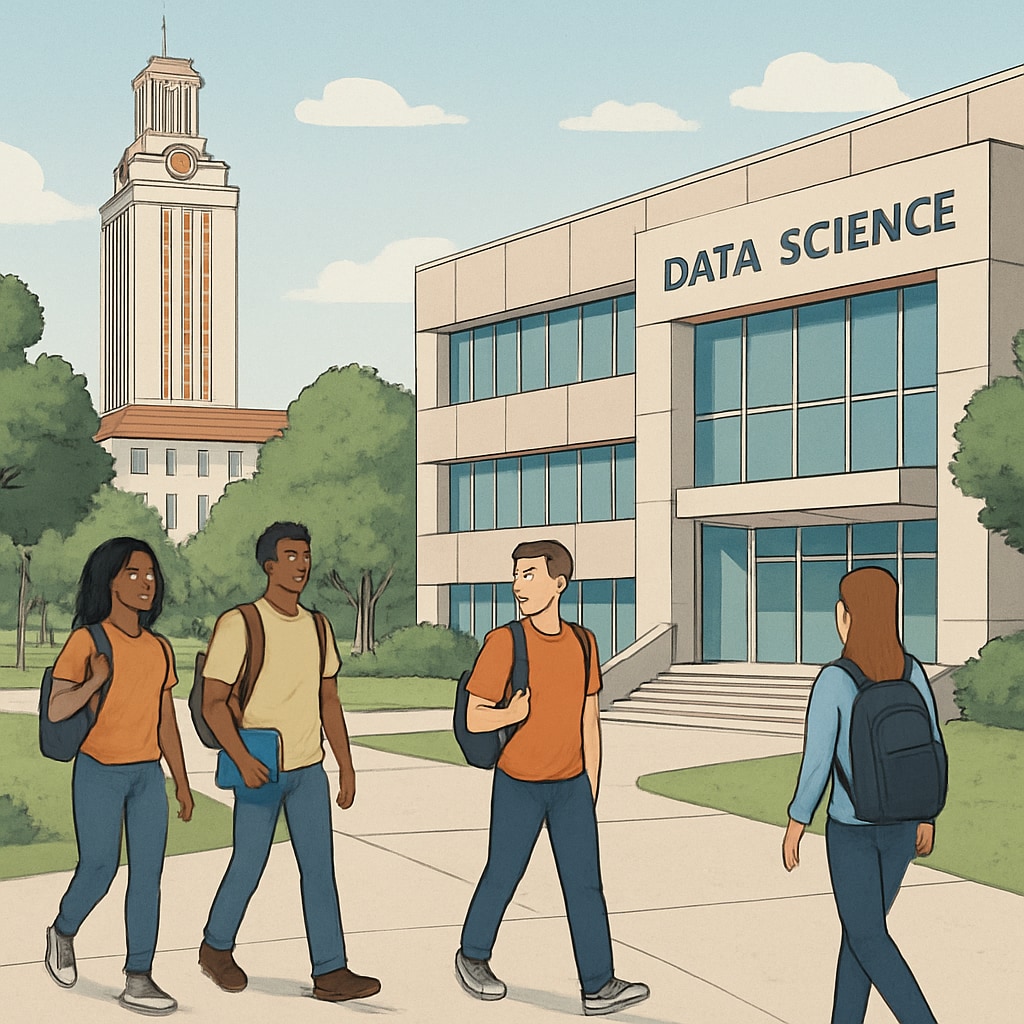For international students aspiring to study a data science undergraduate degree in the United States, understanding the admission requirements is crucial. Particularly for IGCSE certificate holders, navigating the U.S. higher education system can seem complex. This guide breaks down the key steps, requirements, and considerations, with a special focus on universities in Texas, a hub for data science education. Whether you’re aiming for prestigious institutions or state universities, this roadmap will help you chart your path effectively.
Understanding the Data Science Undergraduate Degree
Data Science is an interdisciplinary field that combines computer science, mathematics, and statistics to extract insights from large datasets. With the growing demand for data scientists across industries, pursuing an undergraduate degree in this field can open doors to lucrative careers. U.S. universities, particularly those in Texas such as the University of Texas at Austin and Texas A&M University, are known for their robust data science programs.
For international students, U.S. universities offer a unique blend of academic rigor and practical exposure. However, the application process involves meeting specific academic and language requirements, which vary between institutions.

Key Admission Requirements for International Students
Applying to a U.S. university as an international student involves several steps. Below are the key admission requirements for a data science undergraduate degree:
- Academic Qualifications: Most universities require a high school diploma or an equivalent qualification. For IGCSE holders, this typically means demonstrating A-Level or equivalent results, with strong grades in mathematics and science subjects.
- English Proficiency: Non-native English speakers must provide proof of language proficiency through standardized tests such as TOEFL or IELTS. Minimum scores vary by institution but generally range between 80-100 for TOEFL and 6.5-7.5 for IELTS.
- Standardized Tests: While many universities have adopted test-optional policies, some still require SAT or ACT scores. Strong quantitative scores can enhance your application, especially for data science programs.
- Personal Statement and Letters of Recommendation: These documents provide insight into your motivation, academic potential, and character. Aim to highlight your passion for data science and any relevant experience.
- Extracurricular Activities: Participation in STEM-related activities, such as coding competitions or data analysis projects, can strengthen your profile.
For Texas universities, it’s important to check specific requirements on their official websites. For example, the University of Texas at Austin outlines detailed admission criteria for international students here.
The Role of IGCSE in U.S. Applications
IGCSE (International General Certificate of Secondary Education) is widely recognized by U.S. universities. However, it is often considered equivalent to the U.S. high school diploma, meaning students may need to provide additional qualifications, such as A-Levels or IB (International Baccalaureate) scores, to meet admission standards for undergraduate programs.
When applying with IGCSE certificates:
- Ensure that you include predicted or achieved grades for your A-Levels or equivalent. Strong grades in subjects like Mathematics, Computer Science, and Physics are particularly valuable.
- Verify whether the university requires a credential evaluation. Services like WES (World Education Services) can help translate your IGCSE grades into the U.S. grading system.
- Highlight any coursework or projects related to data science, such as Python programming or statistical analysis, in your application.
Special Considerations for Texas Universities
Universities in Texas are known for their commitment to diversity and excellence in STEM fields. Here are some specific tips for applying to data science programs in Texas:
- University of Texas at Austin: Offers a Bachelor of Science in Computer Science with a focus on data science. International students must meet high academic and English proficiency standards. The university also values extracurricular involvement and leadership skills.
- Texas A&M University: Known for its interdisciplinary approach, the data science curriculum here integrates real-world applications. The admission process prioritizes academic excellence and relevant experience.
- Southern Methodist University: Offers flexible data science programs with opportunities for internships and research. The admissions team provides additional support for international students.

Tips for a Successful Application
To maximize your chances of admission, consider the following tips:
- Plan Early: Start preparing your application at least a year in advance. This includes scheduling standardized tests, gathering recommendation letters, and drafting your personal statement.
- Tailor Your Application: Customize your personal statement and essays to reflect your interest in data science. Mention specific courses, faculty, or research opportunities that attract you to the program.
- Leverage Resources: Utilize online platforms like Common App and College Board to streamline your application process.
- Seek Guidance: Consult with school counselors or education consultants who specialize in U.S. university applications.
Conclusion
Applying for a data science undergraduate degree as an international student with IGCSE certificates requires careful planning and attention to detail. By understanding the admission requirements and tailoring your application to highlight your strengths, you can significantly enhance your chances of success. Whether you choose Texas universities or other U.S. institutions, the journey to becoming a data scientist starts with a well-prepared application.
For more information, explore resources like IGCSE on Wikipedia or consult the official websites of your target universities.


